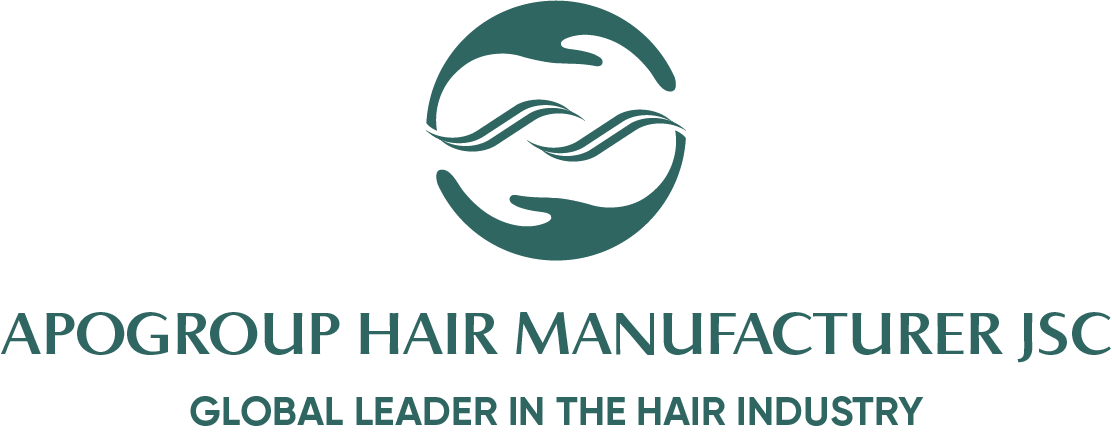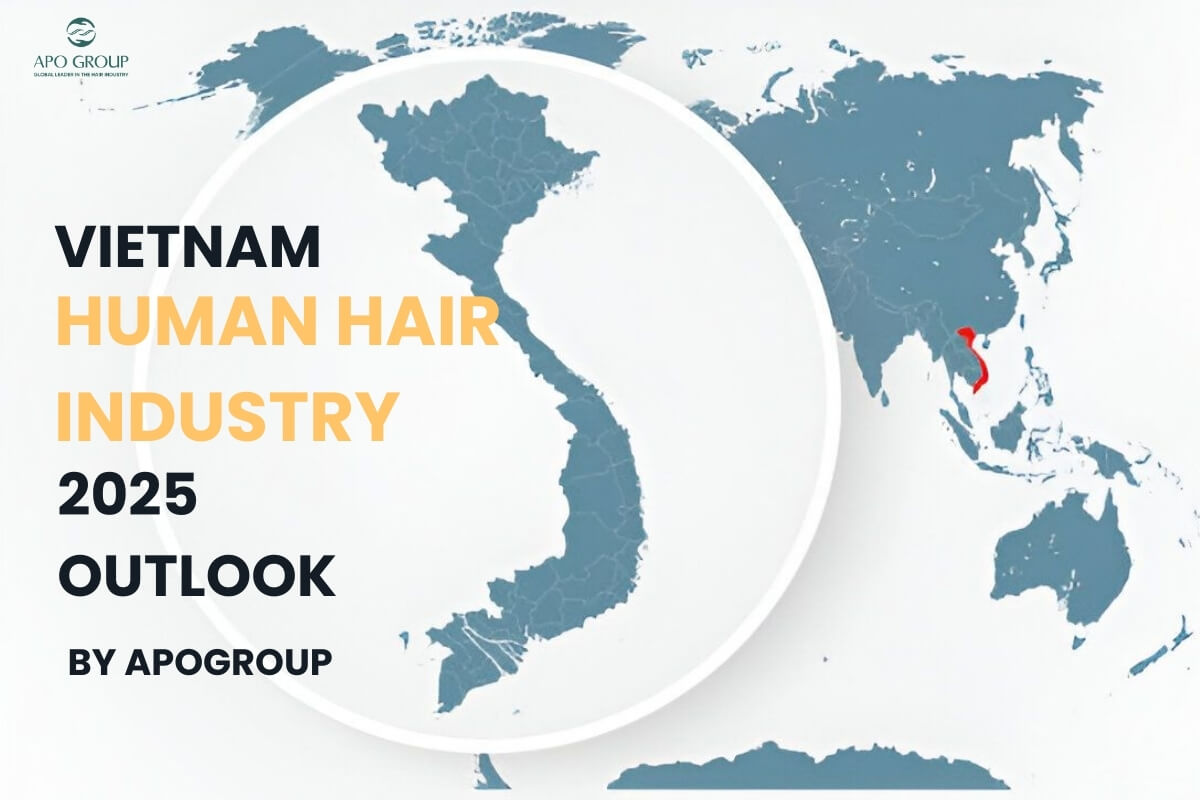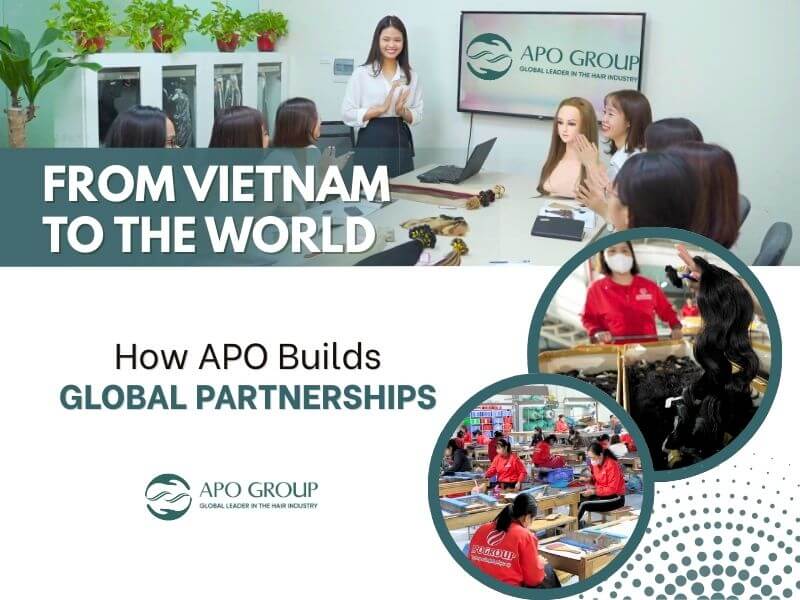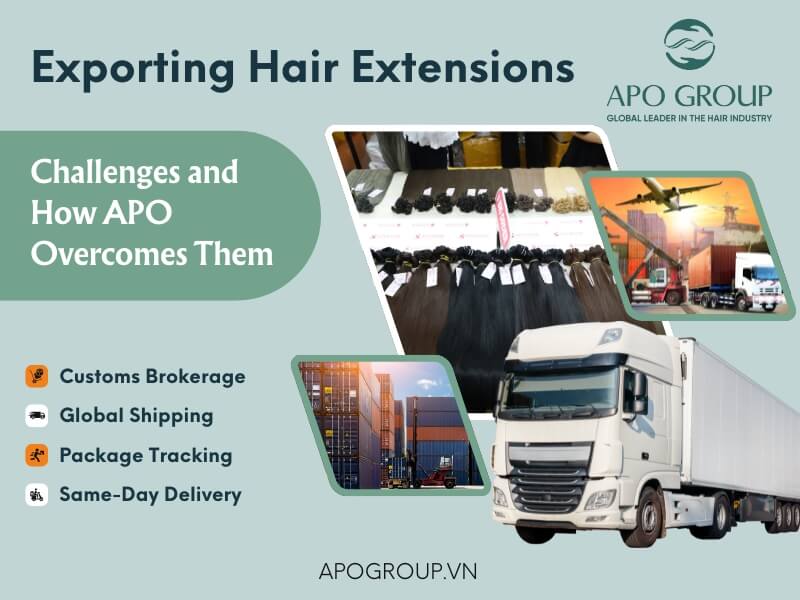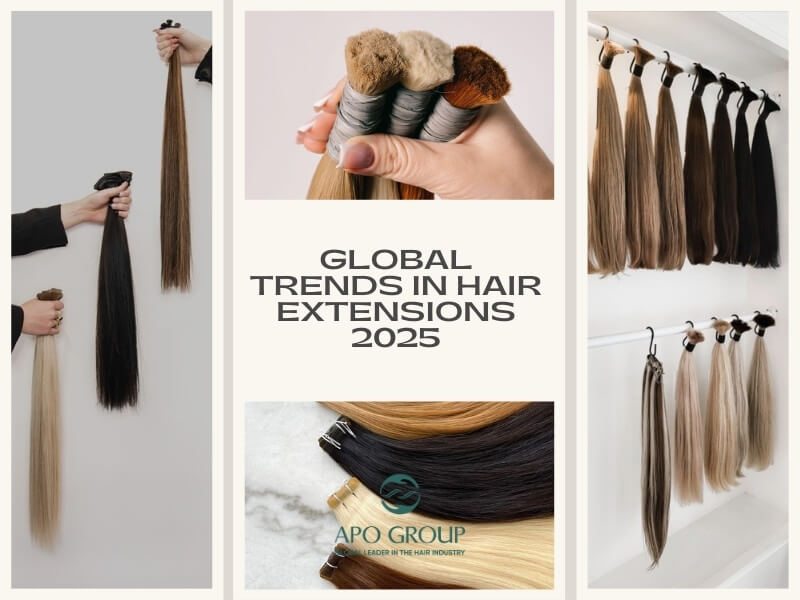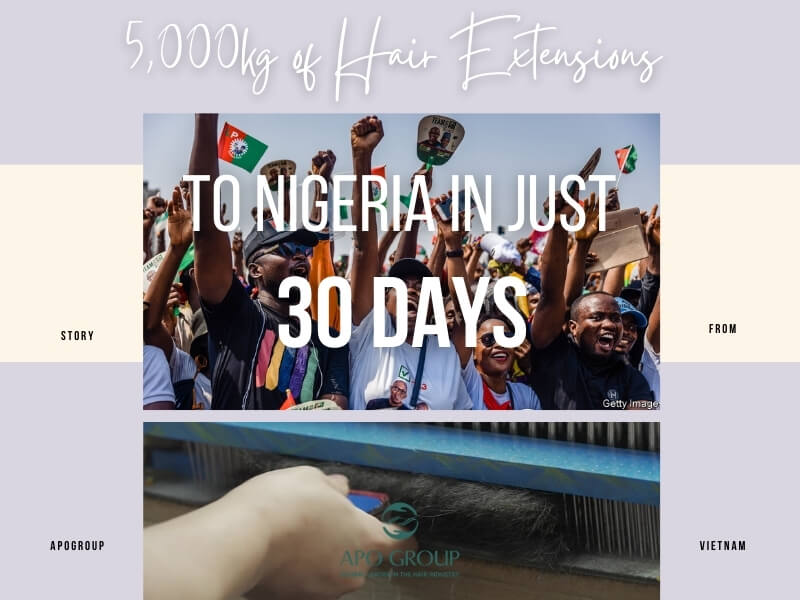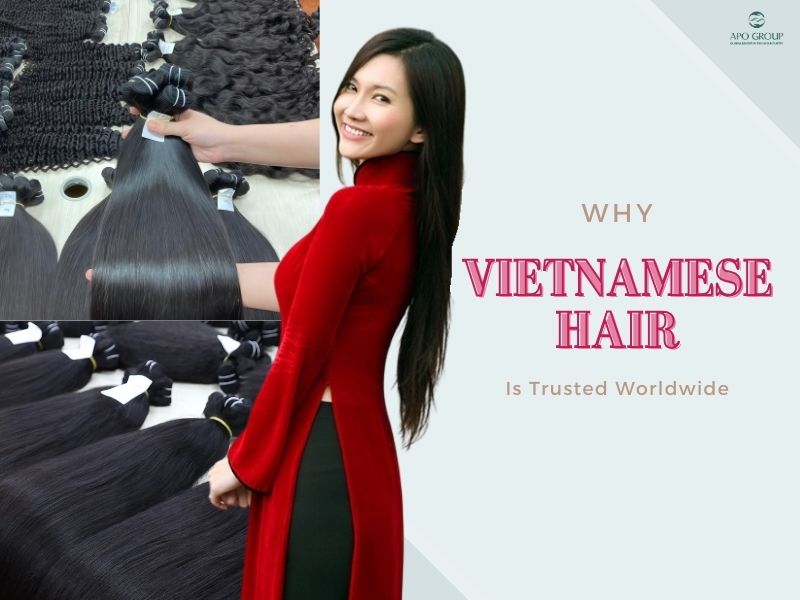The global hair industry has come a long way. What once started as a small trade in local markets with minimal quality checks is now a highly regulated, multi-billion-dollar business. Buyers today expect not just beauty, but also transparency, ethical sourcing, and compliance with international standards.
APOGROUP has not only kept pace with this change but has also been a leader in driving it forward. From recognizing early shifts in customer expectations to pioneering compliance frameworks, APOROUP has consistently set benchmarks that define the future of hair standards.
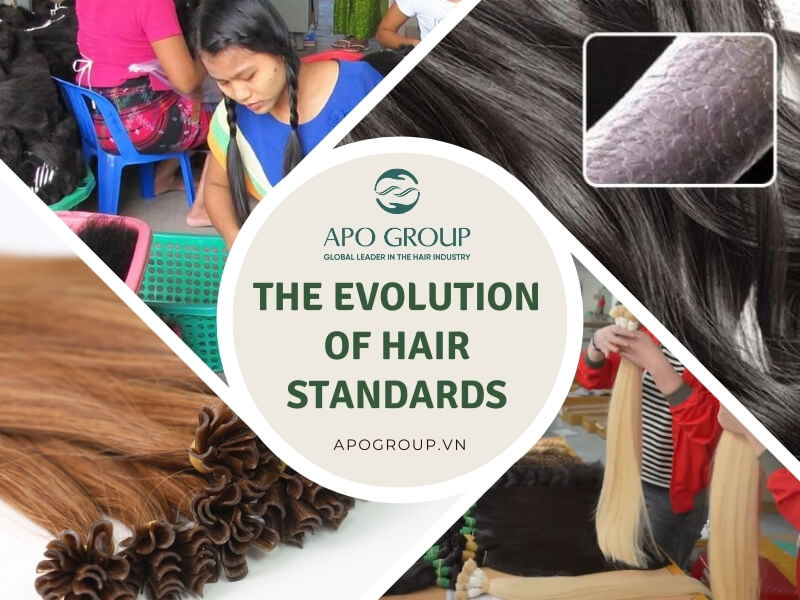
Early Days – Local Markets and Basic Quality Checks
In the early 1990s, the hair extension industry was far from the structured global system we know today. The trade was deeply rooted in local markets, especially in Asian countries such as Vietnam, India, and China.
During this time, hair was mainly collected from markets or temples where people sold or donated their hair. The quality control process was primitive. Buyers and sellers would simply use the naked eye to evaluate the hair. The key criteria were limited to:
- Appearance: Does the hair look healthy and shiny?
- Length and thickness: Is the hair long enough and full enough for resale?
Concepts like Remy or Virgin hair were not yet formalized. Instead, hair bundles were often mixed, with little distinction between natural and processed strands. This led to major limitations:
- Uneven quality: One batch could look different from the next.
- High risk of processed hair: Non-virgin or chemically treated hair was easily mixed in.
- Lack of trust: Buyers had no way of confirming the true quality of what they purchased.
The early days were a foundation, but the lack of standards created challenges for international buyers who demanded consistency. This set the stage for the next revolution in the industry.
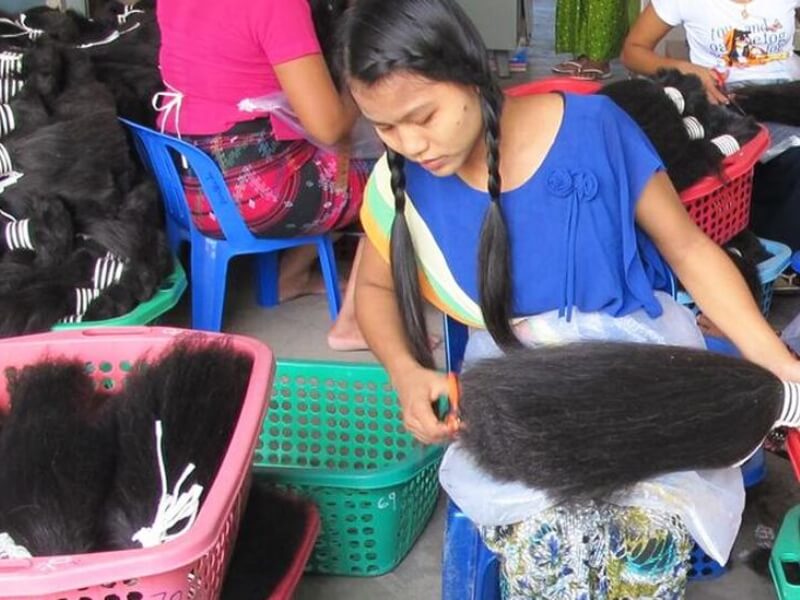
The Rise of Remy and Virgin Hair
Around 2010–2015, the hair industry entered a new era with the rise of Remy and Virgin hair classifications. These terms became the cornerstone of quality assurance, particularly in markets like the United States and Europe.
- Remy hair: Defined as hair where the cuticles are aligned in the same direction. This prevents tangling and maintains the natural look and feel of the hair.
- Virgin hair: Hair that has never undergone chemical processing such as dyeing, perming, or bleaching.
For the first time, customers had clear quality categories that they could trust. The introduction of these standards marked a huge step forward in creating transparency between suppliers and buyers.
This development also reflected the growing sophistication of customers. They were no longer satisfied with “raw hair” of uncertain quality. Instead, they began demanding hair that met specific, verifiable criteria. For suppliers, this meant restructuring their sourcing and processing systems to ensure that hair could be labeled accurately as Remy or Virgin.
This period was transformative not only for the global market but also for suppliers like APOGROUP, who recognized that adhering to these standards was essential for building international trust.
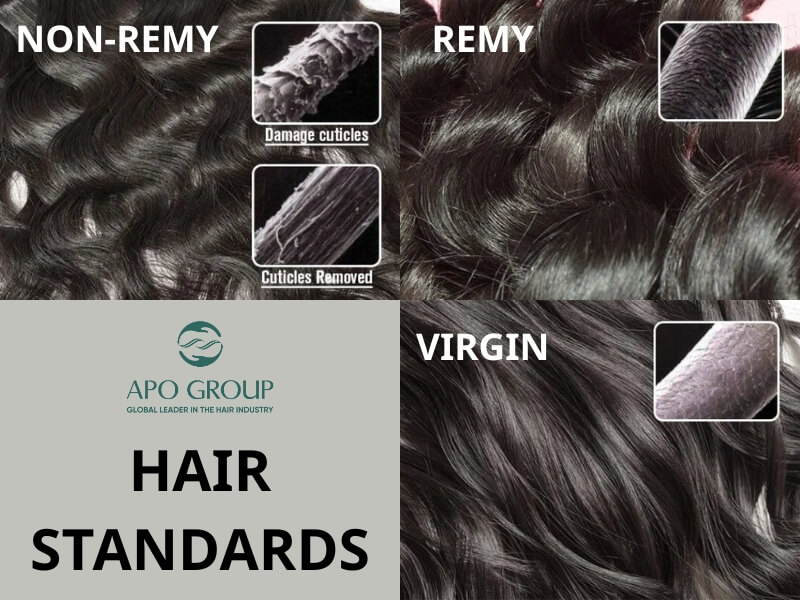
Globalization – The Call for Ethical Sourcing
As the hair industry expanded beyond local borders into highly regulated markets like the US, Europe, and Africa, new challenges arose. It was no longer just about quality – it was about ethics. Consumers began asking difficult but necessary questions: Where does this hair come from? Was it sourced fairly? Were the sellers or donors treated with dignity?
This shift gave rise to the ethical sourcing movement. Transparency and fair treatment became just as important as product quality. Ethical consumers – especially in Western markets – wanted assurance that their beauty choices did not exploit vulnerable communities.
At this stage, APOGROUP took a bold and decisive step. Rather than waiting for regulations to force change, APOGROUP made ethical sourcing a pillar of its identity:
- 100% ethically sourced hair: Every strand is collected with full awareness and consent.
- Fair compensation: Hair sellers are paid fairly for their contributions.
- Transparent supply chain: From collection to export, APOGROUP provides visibility into sourcing practices.
By aligning early with the ethical sourcing trend, APOGROUP not only met customer expectations but also built a reputation for integrity. This ethical foundation became a competitive advantage that distinguished APOGROUP from other suppliers still operating in opaque systems.
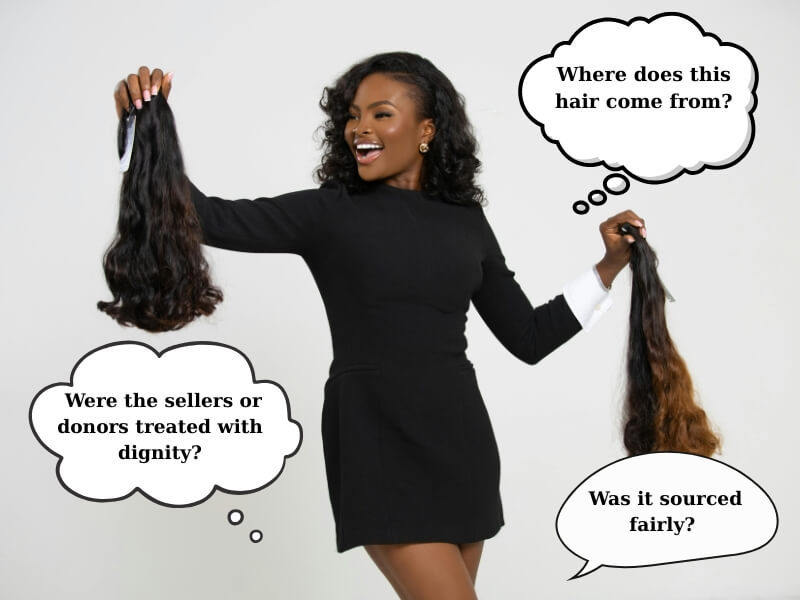
Compliance Standards – Meeting International Regulations
The next evolution in the industry came with compliance. While ethical sourcing addressed moral concerns, compliance standards ensured that hair suppliers could meet legal and regulatory requirements in global markets.
International buyers, particularly in Europe and the United States, demanded compliance in three key areas:
- Factory audits: Suppliers had to prove safe working conditions, fair labor practices, and hygienic production environments.
- Export compliance: Documentation such as customs declarations and certificates of origin became mandatory.
- Health & safety compliance: Products had to be free from toxic chemicals and safe for end-users under EU and US standards.
This was a critical turning point because it required suppliers to professionalize their operations. Factories had to adopt modern machinery, standardized processes, and rigorous quality control systems.
APOGROUP embraced this change by building a robust compliance framework:
- Successfully passed factory audits by international clients.
- Established a compliance system tailored to US/EU regulations.
- Maintained a complaint rate of less than 2%, far below the industry average.
By doing so, APOGROUP reassured buyers that working with them meant not only high-quality hair but also peace of mind in terms of legal and ethical responsibilities.
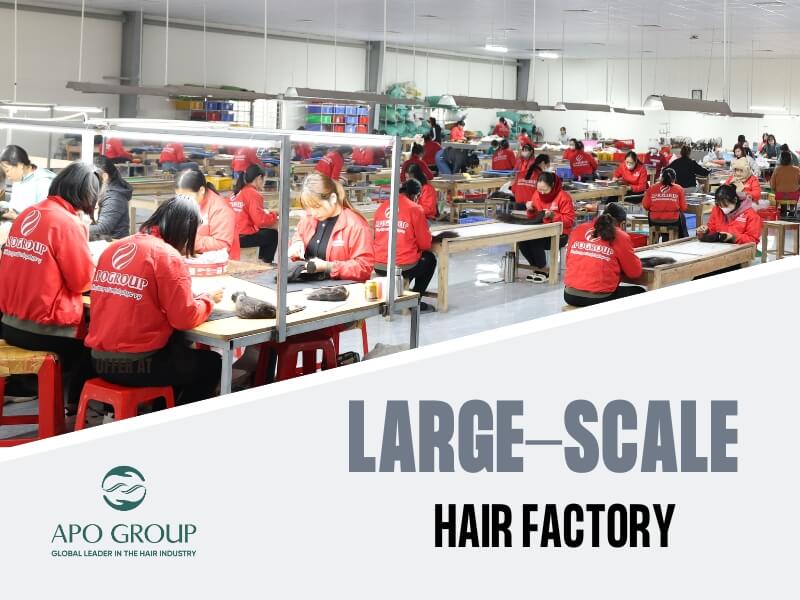
APOGROUP’s Role – Leading the Future of Hair Standards
At each stage of the evolution of hair standards, APOGROUP has not just followed but anticipated what was coming next. Today, APOGROUP stands as a leader in shaping the future of hair standards by committing to:
- 100% ethically sourced hair
- Passing international factory audits
- Compliance with EU and US regulations
But APOGROUP’s vision extends beyond compliance. Its mission is to elevate Vietnamese hair to become the global gold standard. By combining ethical practices, world-class quality, and regulatory compliance, APOGROUP aims to make “Vietnamese hair” synonymous with trust and excellence.
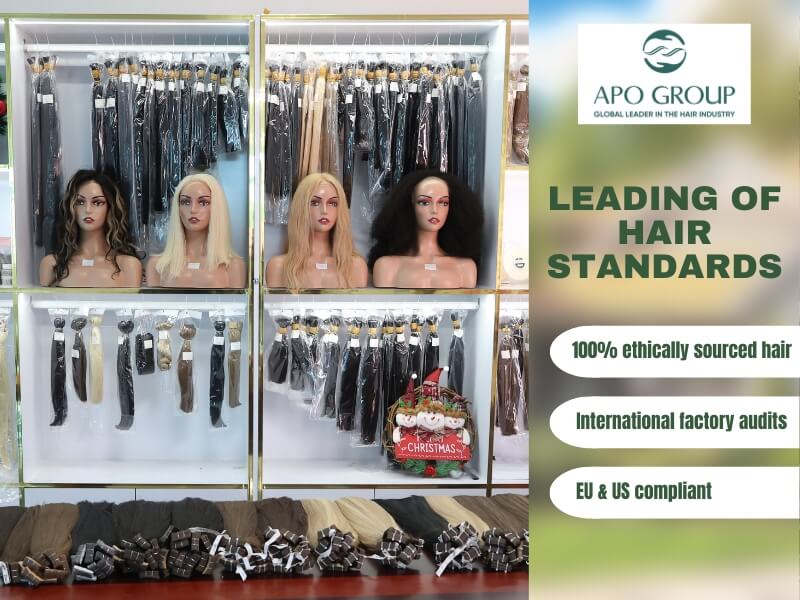
Conclusion
The evolution of hair standards reflects a broader truth: beauty is no longer just about appearance. The journey from informal local markets to globally regulated systems shows how deeply the industry has transformed.
As this evolution continues, one thing is certain: companies that prioritize compliance, ethics, and quality will shape the industry’s future. APOGROUP is proud to be one of those companies – always one step ahead, always setting new benchmarks. Work with a supplier that defines the standards of tomorrow. Contact now.
